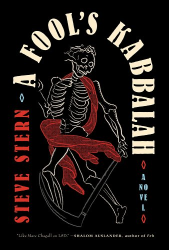Istanbul has always been a cultural crossroads. Turks and Greeks, Russians and Armenians; Christians, Muslims, Jews; the Levant, the Balkan, the European; the traditional and the modern. In Serenade for Nadia, Turkish writer and activist Zülfü Livaneli paints a vibrant, if not grimy, portrait of Istanbul in the winter of 2001. Through the smog and traffic, historic architecture and characters’ deeply buried memories serve as reminders of the city’s complicated past. Drab modern buildings have sprung up around the old. The government and broader culture have encouraged modern Turks to forget about their families’ often tragic and diverse pasts. But history — and the pain, understanding, and love it can bring — is never far from the surface.
This fast-paced, emotional novel is the story of narrator Maya Duran’s dive into history: her own, her friends’, and her country’s. The thirty-six-year-old single mother works for the university and her job is to manage visits for guest lecturers. She takes them around town, arranges their schedule, and sometimes dines with them. Eighty-seven-year-old German-American professor Max Wagner is her latest charge and the octogenarian’s visit upends her life. Wagner is returning to Turkey after a fifty-nine-year absence. Though not Jewish himself, he was one of several mostly Jewish German academics the Turkish government agreed to host during World War II, much to Hitler’s chagrin.
For unknown reasons, the local police are following him through Istanbul.
Maya and Max immediately bond. One day, he insists on visiting a run-down resort town on the Black Sea in the harsh winter weather. Maya finds him standing on a freezing beach playing the beginning of a haunting song on his violin — a song, she learns, is a serenade for his wife, Nadia. After narrowly avoiding disaster by exposure, Maya becomes determined to understand Max’s mysterious past.
Her sleuthing helps her reconnect with her teenage son, who uses his internet savvy to aid in her research. Unfortunately, it also attracts negative attention from the authorities, her boss, and her brother, who is a high-ranking officer in the army. Maya draws on unknown reserves of strength and self-possession to continue her journey in the face of frightening bureaucracy.
Along the way, she discovers deeply buried family secrets and learns about the tragedy of the Struma, the 1942 sinking of a ship filled with Jewish refugees. She comes to understand how deeply our identities are tied with the past, even if we don’t know it. There is no glossing over our histories. For Maya, Max, and the numerous other intriguing characters in this moving novel, the truth will always come out. For Livaneli, that’s the only way any of us can make sense of our lives.





